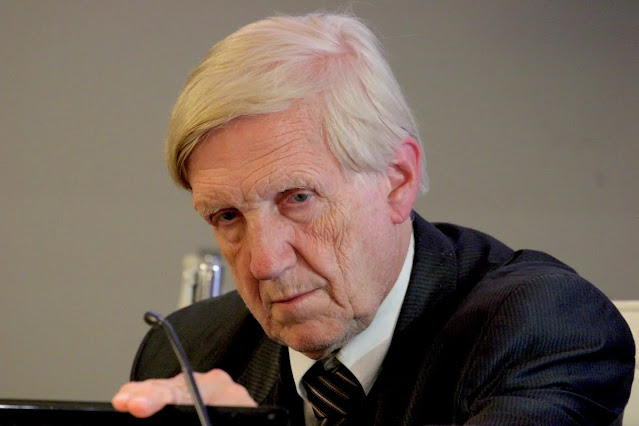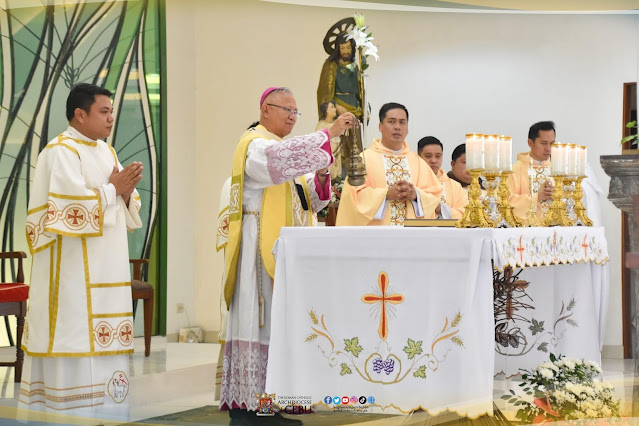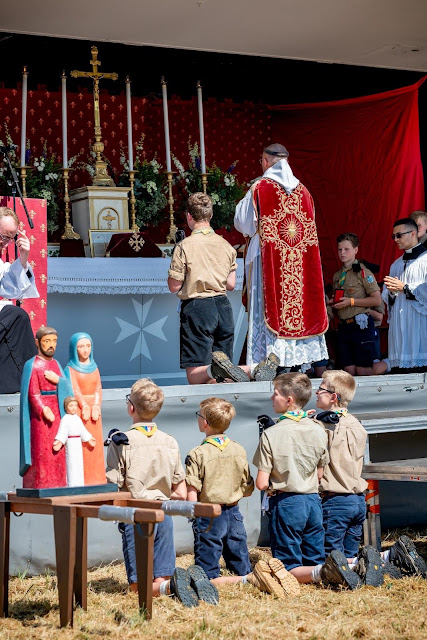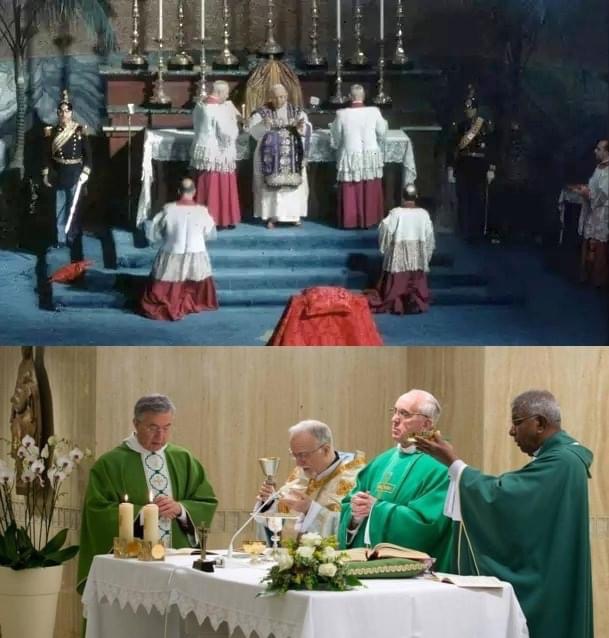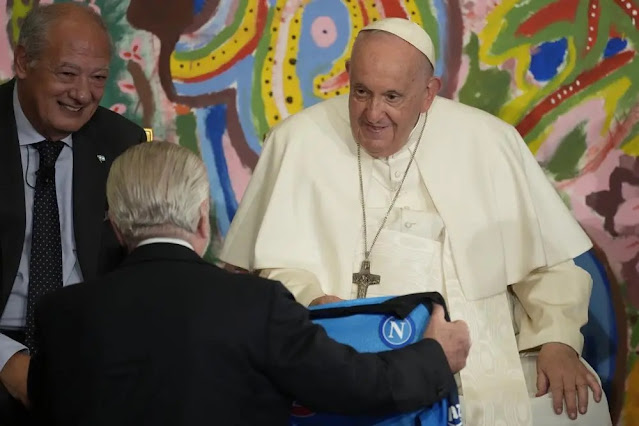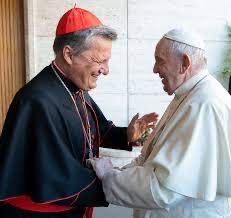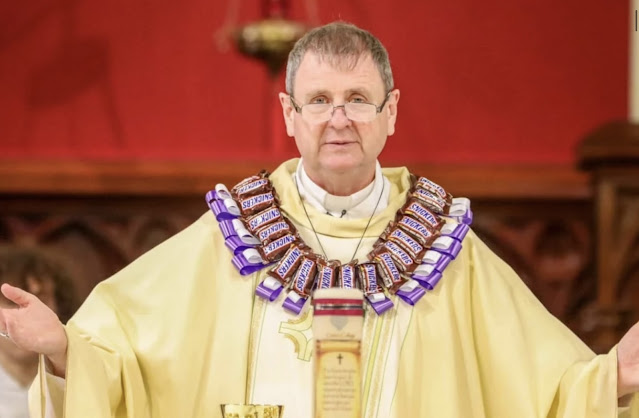On Memorial Day, Monday, May 29th, Pope Francis does what he seems to do consistently. He abuses his flock when it is convenient for him to show how arrogant and self righteous he can be. Today, he humiliated a “rich woman” as he sarcastically calls her, from the time he was a priest. Read it for yourself. I wonder how she feels this morning if she has read this speech and discovers the pope, of all people, has tattled on her and inaccurately and on an international level!
Did the Pope accompany her to find out that her motives in making sure her two adopted children were baptized and being brought up in the practice of the Faith were completely virtuous and in keeping with Catholic Tradition and Canon Law? It is this kind of nonsense from the pope that has damaged his papacy and perhaps the institution of the papacy.
It would be complete clericalism to give any pope a pass on this kind of thing. Ignoring abusive behavior of popes, bishops, priests, deacons, religious and laity is what has caused the epochal scandal which is ongoing in the Church in terms of abuse of any kind.
Apart from the gossip about this “poor” rich woman, the talk is good but the abuse he deals out to his sheep as an example of not to follow is both wrong in substance and style and accompanying a woman trying to do her best as a Catholic mother.
This pope has prided himself, no connection with pride month, I don’t think, but hey, in saying the catch phrase of his papacy, “Who am I to judge.” He’s the pope and he judges constantly and abusively.
Audience with the Clerics Regular of St. Paul (Barnabites) and the spiritual family of St. Anthony Maria Zaccaria, 05.29.2023
This morning, in the Vatican Apostolic Palace, the Holy Father Francis received in audience the Clerics Regular of Saint Paul (Barnabites) and the spiritual family of Saint Anthony Maria Zaccaria on the occasion of the 125th anniversary of his canonization.
We publish below the speech that the Pope addressed to those present during the meeting:
Speech of the Holy Father
Dear brothers and sisters, welcome!
I am pleased to share this moment of meeting with you, on the occasion of the 125th anniversary of the canonization of Saint Anthony Maria Zaccaria and as you prepare for two important General Chapters. You are fathers, sisters and lay people, gathered in three "colleges", as your Founder defined them; all animated by the apostolic spirit of Saint Paul, which inspired your origins and under whose protection you still work in various parts of the world.
I take inspiration from a characteristic expression of Saint Anthony Mary. He said to his followers: «You must run like crazy! Running towards God and towards others!» – run like crazy, don't be crazy that they run, that's another thing! – I would like to underline three aspects of this typically Pauline exhortation: the relationship with Christ, apostolic zeal and creative courage.
In the experience of Zechariah himself, the basis of the mission is "running towards God", that is, a strong relationship with the Lord Jesus, cultivated from his youth on a serious path of growth, in particular by meditating on the Word of God with the help of two good religious. This is what led him first to catechetical commitment, then to the priesthood and finally to the religious foundation. This type of relationship with Christ is also fundamental for us, to tell everyone, having experienced it personally, that life is not the same with or without the Lord (cf. Apostolic Exhortation Evangelii gaudium, 266), to continue to "run towards the goal”, as Saint Paul says, and to involve the people entrusted to us in this race (see 1 Cor 9:24-27). Our missionary announcement is not proselytism - I stress this a lot - but sharing a personal encounter that changed our lives! Without this, we have nothing to announce, nor a destination to walk together.
I had a bad experience with this in a youth meeting some years ago. I came out of the sacristy and there was a lady, very elegant, she too could see that she was very rich, with a boy and a girl. And this lady, who spoke Spanish, said to me: "Father, I'm happy because I converted these two: this one comes from this place and this one comes from this one". I got angry, you know?, and I said: "You have not converted anything, you have disrespected these people: you have not accompanied them, you have proselytized and this is not evangelising". She was proud to have converted! Be careful to distinguish apostolic action from proselytism: we do not proselytize. The Lord has never proselytized.
«Run towards the others»: this is the second indication. This is also essential. In fact, if we lose sight of the horizon of proclamation in our life of faith, we end up closing in on ourselves and drying up in the desert lands of self-referentiality (cf. General Audience, 11 January 2023). It happens to us like an athlete who continues to prepare for the great race of his life without ever setting off: sooner or later he ends up depressed and begins to let himself go, his enthusiasm fades. And so he becomes sad disciples. We don't want to become sad disciples! Here too I ask a question: is there that worm of sadness inside me? Sometimes in me, religious, layman, do I let that worm enter? Someone said that a sad Christian is a sad Christian: it's true. But sadness must not enter us consecrated persons, and if someone feels that sadness, he should immediately go before the Lord and ask for light, and ask some brother or sister to help him get out of itRunning towards others»: this is the second indication. This is also essential. In fact, if we lose sight of the horizon of proclamation in our life of faith, we end up closing in on ourselves and drying up in the desert lands of self-referentiality (cf. General Audience, 11 January 2023). It happens to us like an athlete who continues to prepare for the great race of his life without ever setting off: sooner or later he ends up depressed and begins to let himself go, his enthusiasm fades. And so he becomes sad disciples. We don't want to become sad disciples! Here too I ask a question: is there that worm of sadness inside me? Sometimes in me, religious, layman, do I let that worm enter? Someone said that a sad Christian is a sad Christian: it's true. But sadness must not enter us consecrated persons, and if someone feels that sadness, he should immediately go before the Lord and ask for light, and ask some brother or sister to help him get out of it.
For this reason, Jesus places the mandate at the very roots of the Church: "Go into all the world and proclaim the Gospel to every creature" (Mk 16:15); and Saint Paul confirms this when he says, speaking of his apostolate: "I cannot help it, and woe to me if I do not proclaim Christ" (cf. 1 Cor 9:16). There was no place for sadness, he wanted to go on. Woe to us if we do not proclaim Christ! Therefore I encourage you to go forward in the direction indicated by your charism: "Bringing the living Spirit of Christ everywhere". The "living" Spirit of Christ is the one that conquers the heart, that doesn't make you sit in an armchair, but makes you go out towards your brothers, with a light backpack and a look full of charity. Carry this Spirit everywhere, excluding no one and also opening yourself up to new forms of apostolate, in a changing world that needs flexible and open minds, shared paths of research, to identify suitable ways to transmit the one Gospel ever.
And with this we come to the third point: «running like madmen» – which is not the same as madmen who run, it is different – that is, creative courage. It is not so much a question of developing sophisticated techniques of evangelization, but rather, as Saint Paul says, of becoming "everything for everyone, to save someone at any cost" (1 Cor 9:22), of not stopping in the face of difficulties and looking beyond the horizons of habit and quiet living, of "it's always been like this". St. Anthony Mary had this courage, giving life to new institutions for his time: a congregation for the reform of the clergy at a time when many ecclesiastics had become accustomed to a comfortable and well-off life; a non-cloistered female religious congregation, dedicated to evangelization, at a time when consecrated life was foreseen only in cloisters for women; a congregation of lay missionaries actively involved in proclamation, at a time when a certain clericalism dominated. They were all new realities – he was creative, but with fidelity to the Gospel – these realities did not exist before: the Founder understood that they could be useful for the good of the Church and of society, and for this reason he invented them and it has defenses against those who did not understand its meaning and opportunity, to the point of coming to Rome to account for it. And there is an important teaching in this too, because he did not exercise his creativity outside the Church: he did so within it, accepting corrections and reminders, trying to explain and illustrate the reasons for his choices and safeguarding the communion in obedience.
I conclude by recalling one last important value for your "colleges": the importance of working together. Communion in life and in the apostolate is in fact the first witness you are called to bear, particularly in a world divided by struggles and selfishness. It is written in the DNA of Christian life and the apostolate: "So that they may all be one" (Jn 17:21), as the Lord prayed. After all, the very word "college" indicates precisely this: chosen to be together, to live, work, pray, suffer and rejoice together, as a community. And so, dear brothers and sisters: "Run like crazy, towards God and towards others, together!". And may Our Lady, who hastened to help Elizabeth, accompany you. I bless you from the bottom of my heart. And please don't forget to pray for me. Thank you.
[00984-IT.02] [Original text: Italian]
